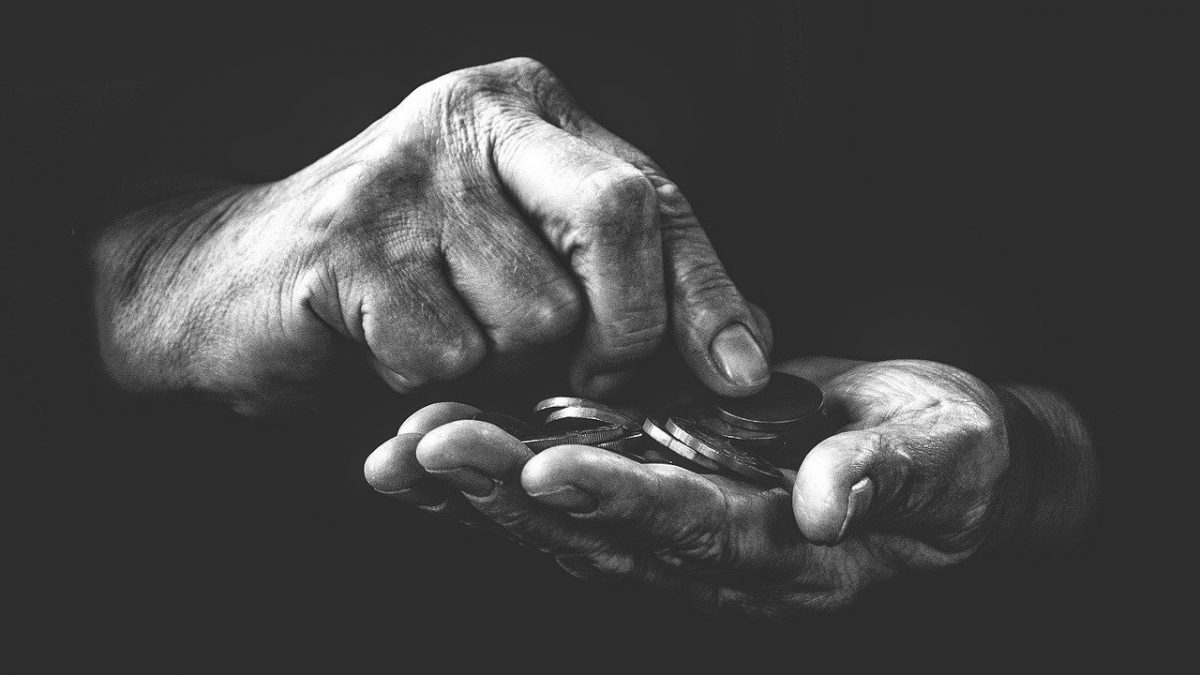Established by the United Nations, 17 October is marked every year around the world as the International Day for the Eradication of Poverty. Persons living in poverty and lacking sufficient means to cover their basic needs often face various forms of discrimination, including that based on their economic status.
Poverty and discrimination are tightly interrelated: living on a low income increases one’s chances of experiencing discrimination in all areas of life. Unfortunately, neither persons living in poverty nor those working professionally with them, such as social workers, job centers’ employees and others, are informed enough about discrimination, its forms and the available means of protection against it.
Thus, discrimination, including its forms based on the victims’ economic status, often goes unrecognized and unreported. To counter this problem, we report regularly on the incidences of discrimination based on economic status in our annual reports to the Croatian Parliament and issue recommendations to the competent institutions, an example of which is the one recommending that the Croatian Employment Service continue educating various stakeholders in the labor market, especially the employers, on discrimination based on economic status in hiring procedures.
What is Discrimination Based on Economic Status?
The Antidiscrimination Act defines discrimination as the treatment based on any of the grounds listed in the Act whereby a person is, has been, or could be placed in a less favorable position than other persons in a comparable situation. Placing a person in a less favorable position on the grounds listed in the Act in relation to other persons in a comparable situation on the basis of an apparently neutral provision, criterion or practice represents discrimination as well, unless these are expressly allowed for by the law.
The Act lists discrimination grounds as well as numerous areas of life in which discrimination is prohibited, including one’s economic status, meaning that no one can be placed in a less favorable position than another person in a comparable situation solely on account of that factor.
Despite the Act’s clear provisions, citizens still do encounter this form of discrimination. Below are some of the examples encountered in our work over the years:
- Car ownership as an employment requirement – such a requirement places the applicants who do not own a vehicle in a less favorable position based on their economic status, as it disqualifies them from being hired, as well as potentially discouraging qualified candidates from applying at all. Such was the case of a citizen who contacted us anonymously, resulting in our recommendation to the employment agency in question to remove the discriminatory requirement from the job advertisement and to conduct its business in a way that does not place any of the candidates in an unequal position based on any of the prohibited discrimination grounds.
- Potential Discrimination of Enforcement Debtors – over the past years the Ombudswoman was frequently contacted by enforcement debtors – owners of the so-called “protected accounts”, who could not obtain bank cards and thus could not use ATMs or other banking services available to other clients who did own them – a practice that placed them in a less favorable position compared to other bank customers. Many of them were elderly, of ill health and living in rural areas without accessible physical bank affiliates. We warned about the problem as early as 2015, recommending that all commercial banks issue cards to the protected accounts’ owners. The recommendation was accepted only partially, however, and the issue was exacerbated during the current COVID-19 pandemic and the introduction of the epidemic measures such as sheltering at home and social distancing. Thus, we addressed the Croatian National Bank and repeated the recommendation. According to the most recent information, currently 17 out of the 20 Croatian commercial banks do issue bank cards to enforcement debtors.
- Suspicion of Discrimination of Lower Socioeconomic Status Parents Experiencing a Stillbirth – one of the complaints the Office of the Ombudswoman worked on involved a woman who experienced stillbirth and had to organize the transport of the bodily remains of the child herself, as she gave birth in a hospital located outside of her town. Furthermore, the Croatian Health Insurance Fund refused to cover the related costs. Her complaint was motivated by a wish to help other parents in similar situations. The Ombudswoman recommended that the Ministry of Health and the Fund jointly amend the situation, by altering the relevant legislation and earmarking the necessary funds in the state budget so as to be able to financially assist all parents facing such extremely difficult situations and so as to avoid the possibility of any of them experiencing discrimination based on their economic status.
What to Do if You Feel You Are Being Discriminated Against?
There are several possibilities that can be utilized if you feel you were, are or might in the future be discriminated against either on the grounds of religion or any of the others listed above:
- submit a complaint to the Ombudswoman (more info here)
- submit a complaint to one of the specialized ombuds:
- Ombudswoman for children (more info here)
- Ombudswoman for the persons with disabilities (more info here – Croatian only)
- Ombudswoman for gender equality (more info here)
- apply for free legal aid (more info here)
- consult an attorney
- seek court protection
Only the courts have the mandate to determine whether or not discrimination took place in a particular case and impose sanctions on the perpetrators. On the other hand, after having conducted an investigation procedure and established possible discrimination, the Ombudswoman can issue a warning, a recommendation or a proposal. In the more general sense, under the ADA, she regularly informs the Croatian parliament and the public about incidences and prevalence of discrimination.


